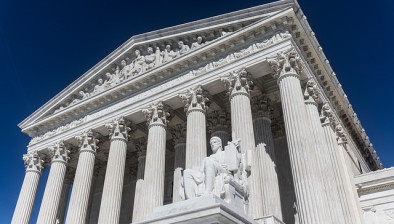Court of Appeal: Unsuccessful appellant succeeds in application to displace ‘usual rule’ as to costs

The Court of Appeal has decided that s.3 of the Environment (Miscellaneous Provisions) Act 2011 applied to proceedings brought unsuccessfully under s.160 of the Planning and Development Act 2000.

About this case:
- Citation:[2023] IECA 235
- Judgment:
- Court:Court of Appeal
- Judge:Mr Justice Séamus Woulfe
Delivering judgment for the Court of Appeal, Mr Justice Séamus Woulfe noted that the requirement in s.4(1) of the Environment (Miscellaneous Provisions) Act 2011 to make out a stateable argument that a contravention of planning permission caused or would likely cause damage was a “low bar” to meet, and that statutory words “in respect of” are “invariably given a very wide meaning”.
Background
The appellant was entirely unsuccessful in its appeal against the decision of the High Court refusing to make orders under s.160 of the Planning and Development Act 2000 concerning the relocation of a temporary public car park operated by the respondents at the Cliffs of Moher Visitor Centre.
The application was refused as it was commenced outside of the statutory time period.
The Court of Appeal indicated a provisional view that the respondents were entitled to their costs of the appeal, but gave the parties liberty to apply for a supplemental hearing on the issue of costs, which invitation the appellant availed of. The parties delivered detailed written submissions, and the court decided to deliver a written ruling only in light of those submissions.
The Court of Appeal subsequently became aware that the Supreme Court was due to give judgment in Heather Hill Management Company CLG v An Bord Pleanàla [2022] IESC 43, and notified the parties that it would await that judgment before delivering any costs ruling.
The parties’ submissions
The appellant submitted that s.160 proceedings come within s.4(1) of the Environment (Miscellaneous Provisions) Act 2011 and that s.3 of that Act displaces the usual rule that costs follow the event.
S.4 specifies the proceedings to which s.3 applies, being civil proceedings instituted by a person for the purpose of ensuring compliance with or enforcement of a statutory requirement, condition or other requirement in a permission, or in respect of the contravention of permission, where the failure to ensure compliance or to enforce or comply with the permission has caused or is likely to cause damage to the environment.
The appellant contended that s.160 proceedings were civil proceedings of the type described in the 2011 Act, and argued that the relocated car park, which was supposed to be temporary, had permanently replaced grasslands causing damage within the meaning of “damage to the environment”.
The appellant asserted, as an alternative, that the judgment of Humphreys J. in North East Pylon Pressure Campaign Limited v. An Bord Pleanála (No.5) [2018] IEHC 622 in respect of the 2011 Act applied, which held that insofar as the “not prohibitively expensive” rule in Article 9(4) of the Aarhus Convention and Article 11(4) of Directive 2011/92 is concerned, the CJEU held that the requirement to demonstrate environmental damage was incompatible with EU law.
The respondents contended that, in reality, the purpose of the proceedings was to forcibly close the car park to facilitate the appellant’s park and ride facility, and for that reason they did not fall within s.4 of the 2011 Act.
The respondents also submitted that the court was required to consider on an objective basis whether the alleged failure or breach caused or would likely cause damage to the environment, highlighting the necessity of a causative link as per Callaghan v. An Bord Pleanála (No. 2) [2015] IEHC 357.
A further submission was made on behalf of the respondents to the effect that the Supreme Court in Heather Hill had reviewed the decision in North East Pylon Pressure Campaign, and that review supported the position that the articles of the Aarhus Convention referred to did not have direct effect, and to rely on the “not prohibitively expensive” rule, a party must demonstrate an interpretive obligation to do so.
Judgment of the Court of Appeal
Commenting on the “complexity and fluidity” of the law in this area, Mr Justice Woulfe determined that three questions needed to be addressed by the court: whether the s.160 proceedings came within s.4 of the 2011 Act; whether the appellant met the “damage to the environment” criterion; and if the 2011 Act did not apply because the appellant could not meet the “damage” requirement, does the “not prohibitively expensive” rule apply instead to displace the usual rule as to costs?
As to the first question, the court noted that the proceedings clearly fell within s.4(1)(b) of the 2011 Act, which provided that the s.3 “own costs” rule also applies to proceedings instituted by a person “in respect of” the contravention or failure to comply with a permission granted pursuant to the 2002 Act.
Mr Justice Woulfe considered that the words “in respect of” are given a wide meaning, referring to the judgment in Donnelly v. Vivier & Co. Ltd [2022] IECA 104 in support of his conclusion that it was “impossible to gainsay that these proceedings relate to or are connected with the contravention of, or the failure to comply with, the 2002 permission”. Accordingly, the court found that the proceedings came within s.4(1)(b) of the 2011 Act.
Regarding the second question, the court agreed with Ms Justice Marie Baker in O’ Connor v. Offaly County Council [2021] 1 IR 1 in that the test in s.4(1) requires the applicant to go beyond mere assertions of damage, and to make a stateable argument that damage is occurring or is likely to occur.
Noting that the scope of the “damage to the environment” requirement was debatable, Mr Justice Woulfe preferred the broad approach adopted by Mr Justice David Holland in Jennings v. An Bord Pleanála [2022] IEHC 249.
Finding that the appellant had adduced sufficient evidence to make a stateable argument that the alleged failure or contravention had caused some adverse effect to soil and land, the court emphasised that the procedural stage at which this evidence was adduced (in the course of a security for costs motion in the present case) did not make any difference.
The court found it unnecessary to decide on the third question where the second question had been decided in the affirmative.
Conclusion
Accordingly, the Court of Appeal decided that s.3 of the 2011 Act applied to the proceedings, and that the appropriate order was that each party would bear its own costs of the appeal, and that the respondents would pay to the appellant the costs of the written submissions on costs.
Diamrem Ltd v Cliffs of Moher Visitors Centre Limited & Anor [2023] IECA 235










